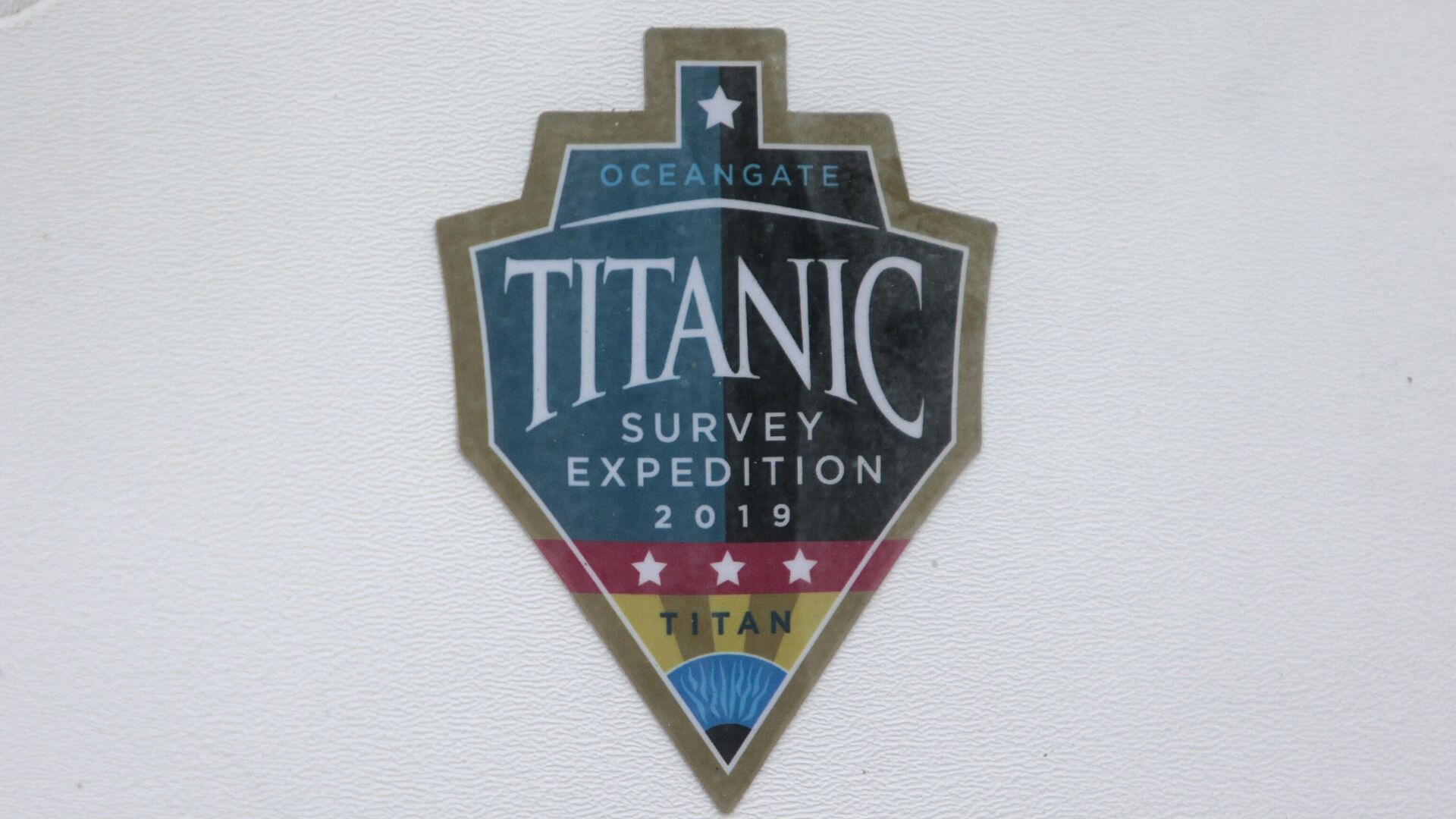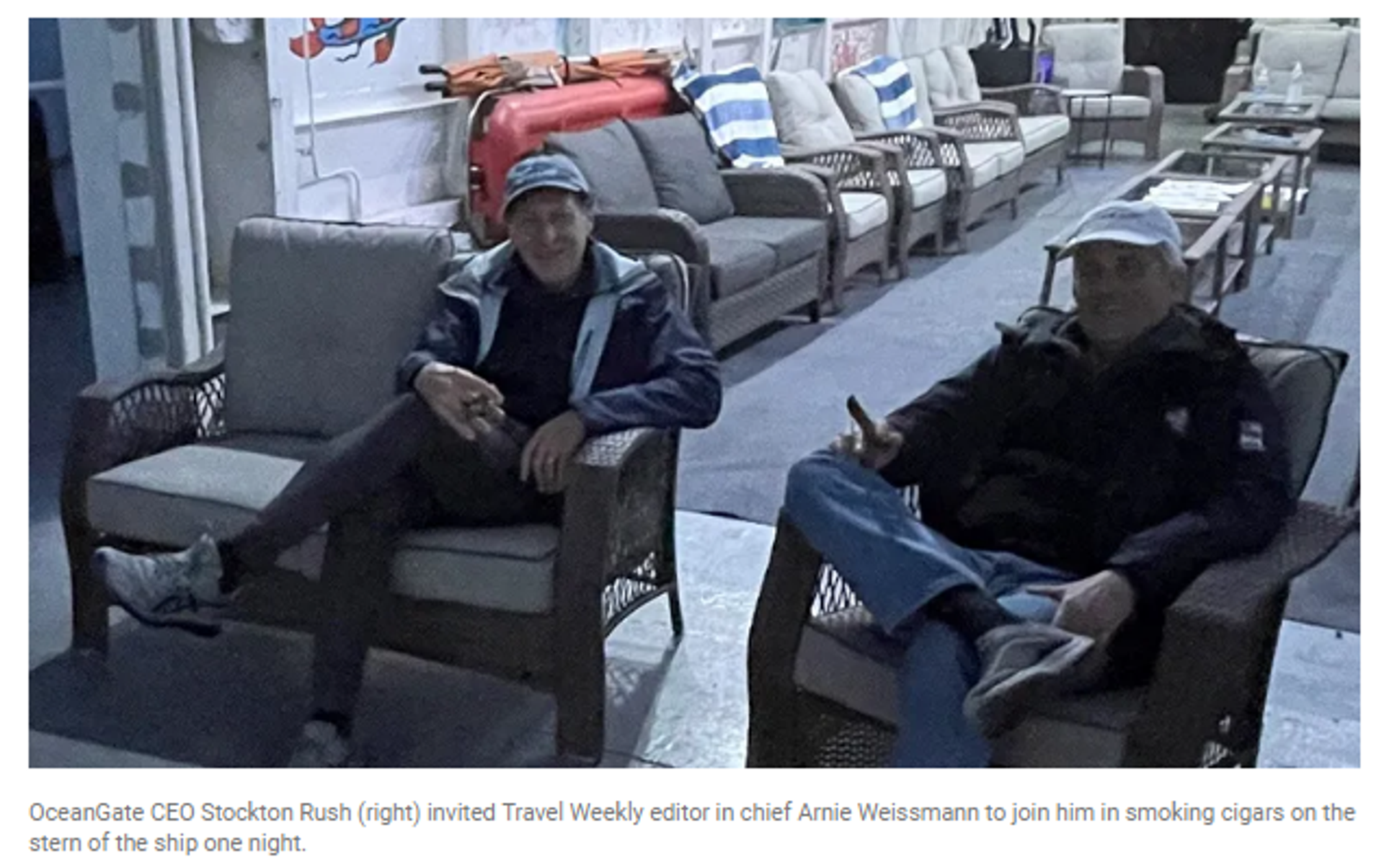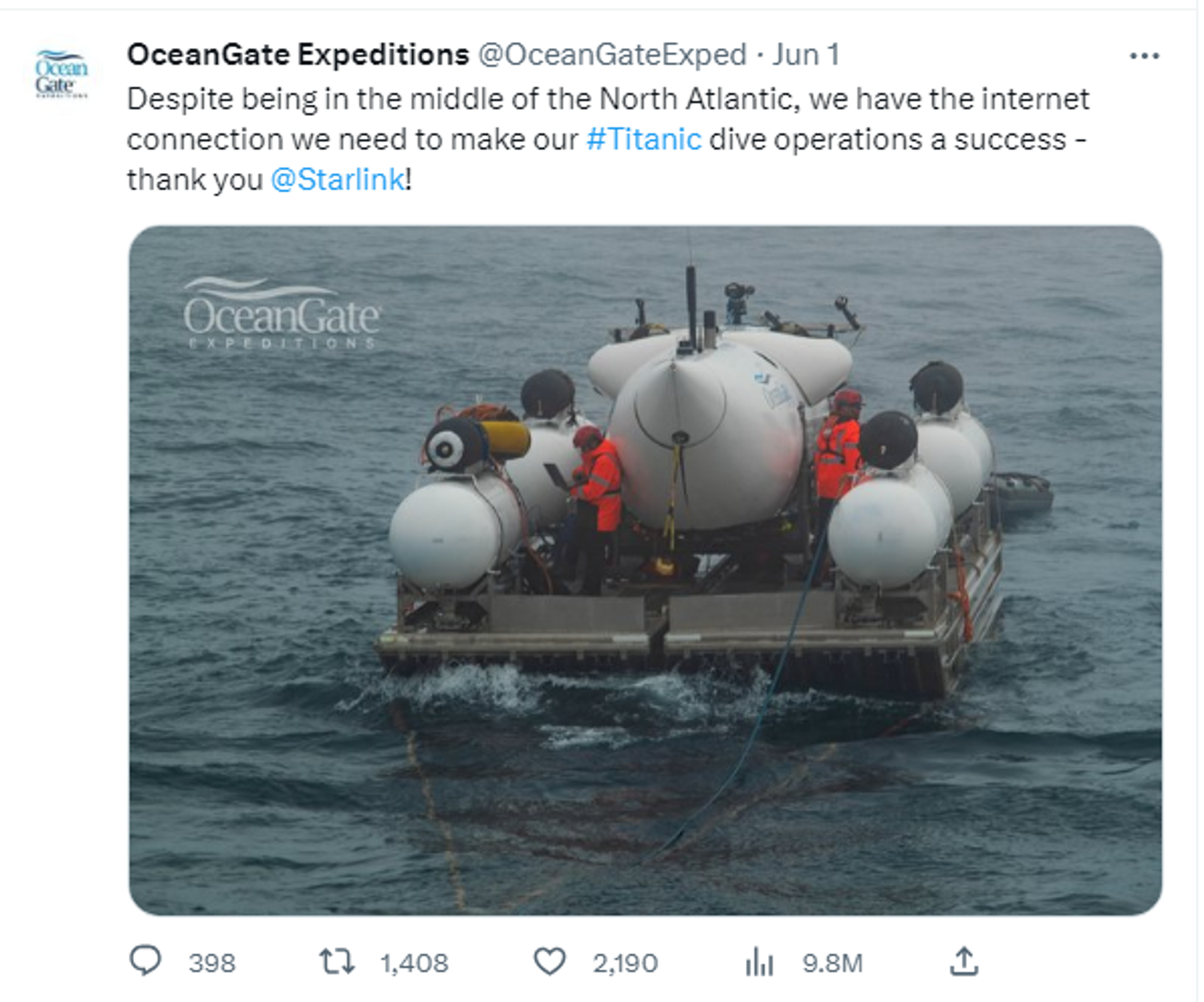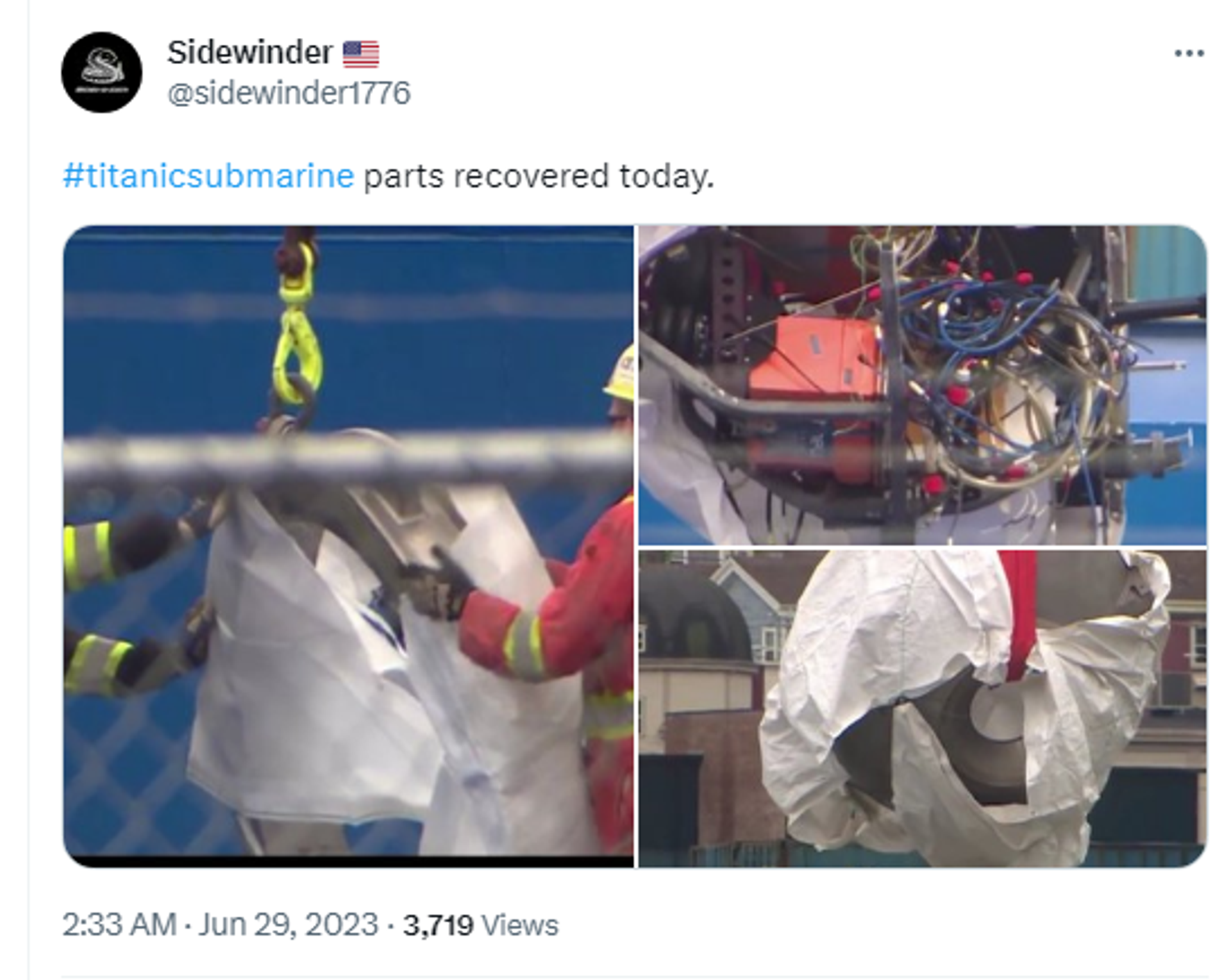Doomed Titan Submersible Reportedly Contained 'Discount’ Parts 'Past Shelf Life'

© AFP 2023 / JASON REDMOND
Subscribe
The Titan submersible went missing on June 18, during an expedition to the Titanic wreckage in the North Atlantic, at a depth of approximately 13,000 feet. After the US Coast Guard confirmed days later that debris found on the ocean floor was made up of pieces of the missing sub, with all five passengers dead, an investigation was launched.
The imploded Titan submersible contained parts 'past their shelf life', according to a journalist who had been selected to join the deep-sea mission but failed to go.
Stockton Rush, CEO of Oceangate, the company that owned the sub, and one of the five passengers who was on it, revealed that he had acquired carbon fiber for it “at a big discount from Boeing,” according to Arnie Weissmann. Rush reportedly told him the cut price was due to material being "past its shelf life for use in airplanes,” Weissmann wrote in Travel Weekly.
While a scheduling conflict had prevented Weissmann from joining the ill-fated dive in June, he had earlier joined an OceanGate Expeditions mission to the wreck of the iconic Titanic in May. However, that dive was cancelled due to bad weather. The conversation between him and Rush reportedly took place as they smoked cigars on the stern of the Titan submersible’s mother ship, Canadian research ship Polar Prince.

Screengrab from Travel Weekly showing OceanGate Expeditions CEO Stockton Rush and Travel Weekly editor in chief Arnie Weissmann.
© Photo
The journalist claims that when he asked Rush if he had "any concerns about" the condition of the material, the CEO answered dismissively: "No, it’s perfectly fine. Having all these certifications for airplanes is one thing, but the carbon fiber was perfectly sound."
According to Weissmann's interview with a US media report, the founder of OceanGate Expeditions also touted the innovative lighter carbon fiber as compared to the more expensive titanium. Rush purportedly added that his company had worked with Boeing and even NASA in the design and testing of the Titan, to ensure that the vessel was safe for the passengers.
“I think if I had known everything I know today, I would not have gone," Arnie Weissmann was cited as saying.
In response to the journalist's revelations, Boeing has since issued a statement saying that, "Boeing was not a partner on the Titan and did not design or build it. Boeing has found no record of any sale of composite material to OceanGate or its CEO."

Screenshot of Twitter account of OceanGate Expeditions.
© Photo : Twitter
Previous US media reports have cited concerns of maritime regulation experts about the carbon fiber and the shape of the Titan. The tragedy had "renewed criticisms of OceanGate’s approach to safety from employees and other industry leaders", given the fact that the deep-sea submersible "relied on decidedly low-tech parts."
Owned by a US private company, OceanGate, the Titan submersible with five people on board went missing during a deep-sea dive to the wreck of the Titanic on June 18. An intensive search and rescue mission finally turned into a recovery operation, with debris discovered leading investigators to believe that cumulative stress on the craft likely caused an implosion that instantaneously killed the passengers.
Those on board the doomed sub, which was on a mission to chronicle the deterioration of the Titanic and the ecosystem around it, were Stockton Rush, the CEO of OceanGate Expeditions, British billionaire Hamish Harding, the owner of Action Aviation, French dive expert Paul-Henri Nargeolet, as well as prominent Pakistani businessman Shahzada Dawood and his son Suleman.

Twitter screenshot showing the recovered parts of OceanGate's Titan submersible that imploded on June 18.
© Photo : Twitter
The US Coast Guard (USCG) has since asked the country’s National Transportation Safety Board (NTSB) to assist in its investigation into the implosion of the Titan submersible. The USCG spokesperson Capt. Jason Neubauer said the probe will include an examination of “accountability aspects." The probe may result in “recommendations to the proper authorities to pursue civil or criminal sanctions, as necessary.”.
Canada’s Transportation Safety Board announced its own investigation, as Titan's support vessel was the Canadian-flagged Polar Prince.


